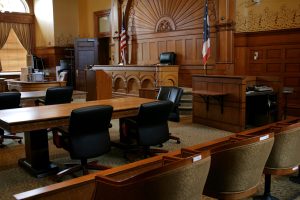When it comes to criminal allegations, judges are generally reluctant to allow consideration of a defendant’s “prior bad acts.” The reasoning here is pretty straightforward: Providing proof of previous misconduct has the potential to poison juror perception of the defendant, leading to potentially unfair outcomes.
The fear is that a conviction will be based on evidence that the defendant committed a different crime besides the one being charged. Similarly, there is concern that jurors may be swayed to convict someone on the basis that they’re a “bad person,” rather than on solid evidence of a crime.
Why is this more of an issue in Florida domestic violence cases? As a Palm Beach domestic violence defense lawyer can explain, courts are more likely to allow evidence of prior bad acts in domestic violence cases than in others.
Prior Bad Acts Reflect Poorly on Defendant
Prior bad acts are generally only admissible when they are relevant and necessary to establish motive, intent, mistake, identity or a common scheme/plan. Domestic violence cases often turn on issues of credibility (he said/she said), particularly if an alleged victim recants. In these cases, introducing evidence of prior violence can make a huge difference between conviction and acquittal.
Such evidence can be used to:
- Negate one’s defense that the injuries were unintentional or accidental.
- Explain why an alleged victim didn’t report their injuries sooner.
- Provide insight into why a victim is recanting the allegations (i.e., intimate partner violence syndrome, fear of future violence, etc.).
- Establish the intention, purpose, or knowledge – critical elements for proving some alleged crimes.
- Counter claims of consent (particularly with allegations of sexual violence).
In cases involving stalking, prior bad acts can be used to challenge defense assertions of mistake or accident, show a pattern of behavior, or show why the defendant’s actions caused the alleged victim to be fearful.
None of these work in the defense’s favor. This is why as Palm Beach criminal defense lawyers, it’s our goal to push back on such admissions. It’s worth noting that when courts do permit evidence of non-charged misconduct, it’s one of the most frequently-litigated issues on appeal. It’s also one of the most common grounds for conviction reversal. Ideally though, it would never be admitted as evidence in the first place.
Florida Rules for Considering Prior Bad Acts
Every jurisdiction has its own rules for whether evidence of prior bad acts is allowed to be weighed as evidence.
The U.S. Supreme Court ruled in Huddleston v. U.S. that Fed. R. Evid. 404(b) need not meet the preponderance of the evidence standard to be admitted – but it has to be for a “proper purpose.” It has to be relevant to the charged crime, and not simply to demonstrate the defendant’s supposed propensity toward criminal conduct. Further, the probative value of that evidence needs to substantially outweigh the danger of unfair prejudice to the defendant. Defendants are allowed to request the court issue a limiting instruction to protect against jury misuse of that evidence.
In Florida, F.S. 90.404(2), evidence of other crimes, wrongs, or acts is “admissible when relevant to prove a material fact in issue, including, but not limited to, proof of motive, opportunity, intent, preparation, plan, knowledge, identity, or absence of mistake or accident.” It is not allowed, however, simply to show a person has bad character or the propensity to commit a crime.
A dedicated Palm Beach domestic violence attorneys, we do everything in our power to prevent the admission of prior bad acts that may unfairly prejudice jurors against our client. It’s imperative to work with an attorney who has extensive experience in successfully handling the kinds of issues that arise unique to domestic violence defense.
Call Fort Lauderdale Criminal Defense Attorney Richard Ansara at (954) 761-4011. Serving Broward, Miami-Dade and Palm Beach counties.
Additional Resources:
EVIDENTIARY TRENDS IN DOMESTIC VIOLENCE, July/August 1998, By Judge David M. Gersten, The Florida Bar Journal
More Blog Entries:
Why Fort Lauderdale Criminal Defense Lawyers Must Combat Evidence-Based Sentencing, Nov. 29, 2023, Palm Beach Defense Lawyer Blog
 Fort Lauderdale Criminal Attorney Blog
Fort Lauderdale Criminal Attorney Blog


